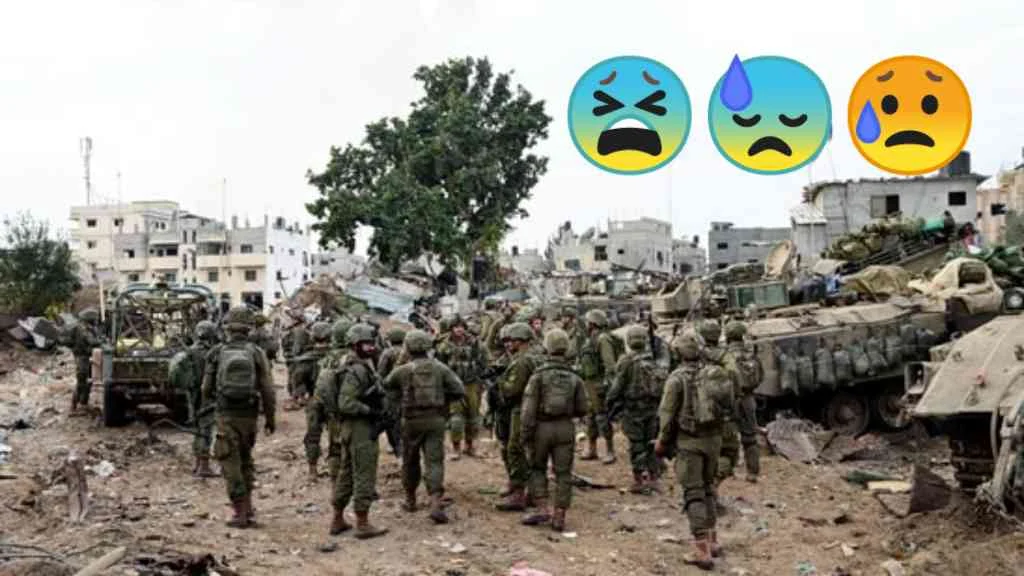Israelis Grapple with 100 Days of War
In a poignant display of unity, Israelis marked 100 days of war with a 100-minute pause in their daily routines, a symbolic gesture underscoring the enduring impact of the conflict that began with Hamas' attacks on October 7.
The nation came together in rallies, not only to express solidarity but also to demand the return of hostages held in Gaza. However, the pervasive anxiety gripping the country since the outset of the conflict still looms large.
A Nation Shaken
The incursion, which claimed the lives of 1,200 people, predominantly civilians, and saw 240 individuals taken hostage, has left an indelible mark on the Israeli psyche. Arnon Bar-David, the leader of the Histadrut confederation of trade unions, encapsulated the prevailing sentiment, stating, “We are in the middle of a terrible dream, and I want to wake up from this terrible dream and create a new Israel.”
Progress Amidst Challenges
While normal life tentatively returns to the streets of Jerusalem, Tel Aviv, and other cities, the shadows of the conflict persist. Many businesses remain shuttered, and hundreds of thousands of reservists remain mobilized, underscoring the challenges yet to be overcome.
A Defiant Stance
Prime Minister Benjamin Netanyahu, in a televised address, affirmed that the war against Hamas would persist until "total victory" is achieved. The government's goals include the elimination of Hamas, the return of hostages, and ensuring that Gaza poses no future threat to Israel. This unwavering commitment sets the stage for an extended conflict, with analysts and military officials suggesting it could endure for months or even a year.
Lingering Existential Fear
Many Israelis confess to a continuing "existential fear," compounded by the looming prospect of a conflict with Hezbollah along the northern border. This fear materialized recently when an anti-tank missile, potentially fired by Hezbollah, claimed two Israeli lives.
Gaza: A Battlefield Unyielding
In Gaza, where Hamas fiercely resists Israel’s campaign, the war rages on unabated. The toll on civilians is staggering, with the Palestinian health ministry reporting 23,968 deaths, predominantly women and children. The number of wounded exceeds 60,000, with more casualties feared buried in the rubble of bombed buildings.
The Civilian Casualty Debate
Israel contends that Hamas bears responsibility for the high civilian casualties, citing the deliberate use of civilian structures by its fighters. The debate over civilian casualties continues, raising questions about the ethics of tactics employed in urban warfare.
Recent Tragedies in Gaza
Recent Israeli airstrikes in Gaza have brought further tragedy. The aftermath, captured by the civil defense department, reveals rescue workers navigating through rubble, rescuing injured children, and recovering casualties. The toll on Gaza's civilian population remains a poignant aspect of this ongoing conflict.
Conclusion
The 100 days of war have left an indelible mark on Israel, shaping its present and potentially its future. As the conflict continues, the nation grapples not just with the physical destruction but also the emotional toll. The resolve to rebuild and ensure lasting security is evident, but the path forward remains fraught with uncertainties.
FAQ
1. What are the main goals of Israel in the ongoing conflict?
Israel aims to eliminate Hamas, secure the return of hostages, and ensure that Gaza no longer poses a threat to the nation's security.
2. How long is the conflict expected to continue?
Analysts and military officials suggest that the conflict could persist for many months, possibly even a year.
3. What is the significance of the 100-minute pause in Israel?
The 100-minute pause symbolizes solidarity and reflection on 100 days of war, allowing Israelis to come together in rallies and express their collective stance.
4. What role does Hezbollah play in the current situation?
Hezbollah poses a potential threat along Israel's northern border, with recent incidents causing concern and claiming lives.
5. How does Israel justify civilian casualties in Gaza?
Israel argues that Hamas is responsible for civilian casualties, citing the group's use of civilian structures for military purposes.


Post a Comment